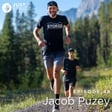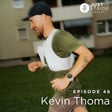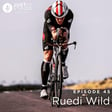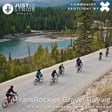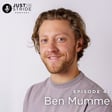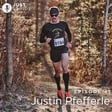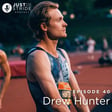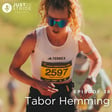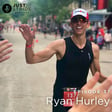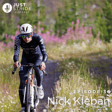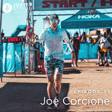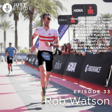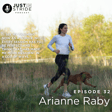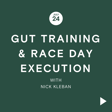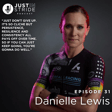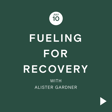
Antoine Jolicoeur on his long and successful triathlon career, having fun at a competitive level, being a professional while getting an education, writing his own book on triathlon, coaching athletes, discovering the world of trail running
Welcome to the "Just in Stride" podcast, where we dive into the world of endurance sports, motivation, and personal growth. I'm your host, and today we have a very special guest with us. He's a triathlete, an author, and a coach who has inspired many with his dedication and passion for the sport. Please join me in welcoming Antoine Jolicoeur.
Antoine's journey in triathlon is nothing short of extraordinary. From grueling training sessions to crossing finish lines, he's not just competed but excelled, embodying the spirit of perseverance and resilience. As an author, he's shared his insights and experiences, offering a wealth of knowledge to both novice and seasoned athletes. And as a coach, he's guided countless individuals towards achieving their personal bests, fostering not just better athletes but stronger, more confident individuals.
In today's episode, we'll delve into Antoine's experiences, the lessons he's learned along the way, and his advice for anyone looking to push their limits and achieve their goals. Whether you're an aspiring triathlete, an endurance enthusiast, or someone seeking inspiration, this conversation promises to be packed with valuable takeaways.
So, lace up your shoes, get ready to be inspired, and let's get started.
Antoine Jolicoeur Desroches - Nxt Generation PHYSIO (nxtgphysio.com)
Antoine Jolicoeur Desroches (@antoinejdtri) • Instagram photos and videos
Antoine Jolicoeur Desroches, vegan triathlete | Great Vegan Athletes | Vegans Thriving. Elite Vegan Athletes
Antoine Jolicoeur Desroches | Strava Cyclist Profile
-------
Offer from Xact Nutrition: This episode is presented by our friends at Xact Nutrition and they are offering you 15% OFF your order when you use the code JUSTINSTRIDE. So head to xactnutrition.com and fuel your goals today! Now shipping in Canada and the U.S.
Thanks for tuning in to the Just In Stride Podcast. I truly appreciate you taking the time to listen and I hope you enjoyed that conversation as much as I did. Please take a minute after this to rate and review our show on Apple Podcasts. With your feedback we’ll be able to make the show even better and it’ll help us reach new listeners too. You can also find us on Instagram @justinstridepod and YouTube @justinstridepod for all the latest episodes and updates. Glad you came along for the ride with Just In Stride!
